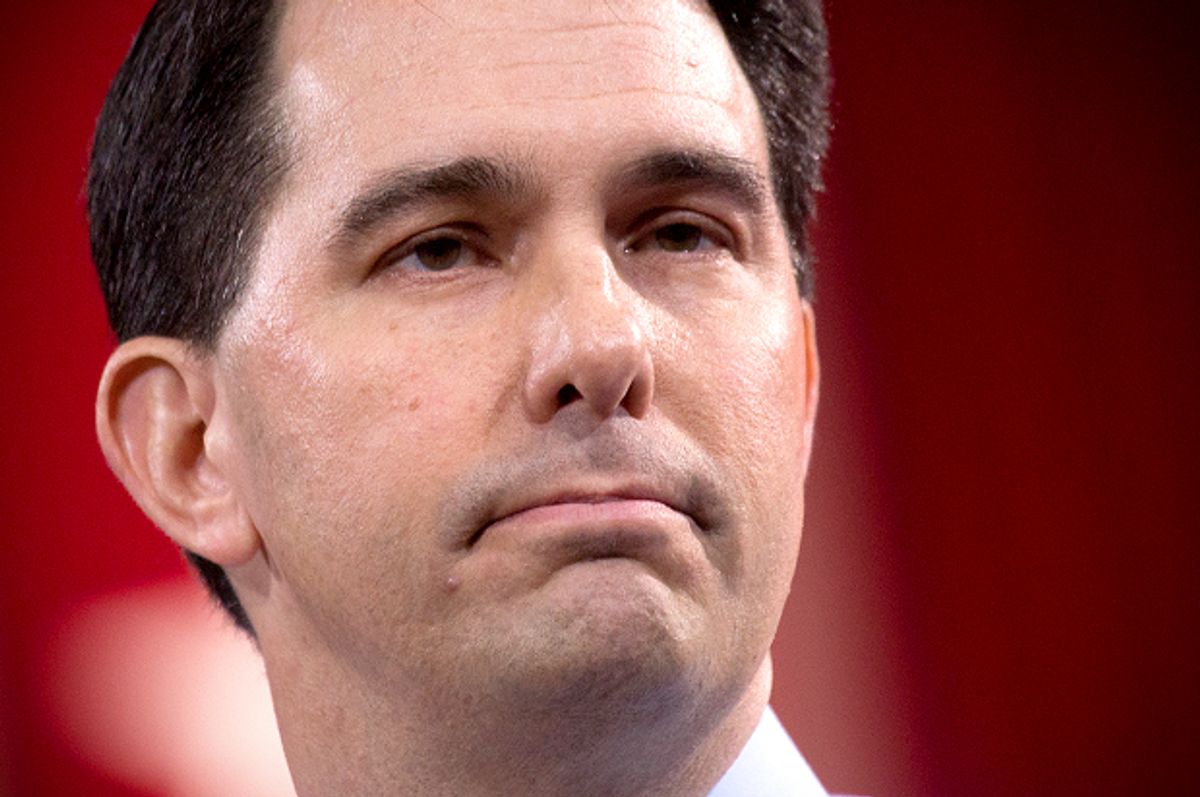Despite repeated assertions that he had no plans to make Wisconsin a so-called right-to-work state, Republican Gov. Scott Walker on Monday signed legislation that banned private sector unions from requiring workers they represent to pay union fees, further chipping away at organized labor's power in the Badger State.
Four years after he enacted a law stripping collective bargaining rights from most public sector workers, Walker asserted that the legislation he signed today would protect workers' basic freedoms.
“This freedom-to-work legislation will give workers the freedom to choose whether or not they want to join a union, and employers another compelling reason to consider expanding or moving their business to Wisconsin,” the likely 2016 presidential candidate said.
Walker announced in February that he would sign the legislation, which secured final approval in the GOP-controlled state legislature last week despite Walker's insistence last year that it would be a "distraction" from his larger governing agenda. While Walker told the Milwaukee Journal-Sentinel that he never objected to right-to-work on the merits, PolitiFact notes that he sounded a sharply different note in 2012, when he told reporters that he had "no interest" in signing such legislation.
"I’m going to do everything in my power to make sure it isn’t there because my focal point [is] private sector unions have overwhelmingly come to the table to be my partner in economic development," the governor added.
Two years later, as he fended off a tough re-election challenge from Democrat Mary Burke, Walker reaffirmed that stance, vowing to "make it clear" to legislators that right-to-work was "not something that's part of my agenda."
But just as Walker rolled back public workers' collective bargaining in 2011 despite never signaling plans to do so during his 2010 campaign, Walker has signed into law yet another measure that further imperils his state's beleaguered labor movement. The New York Times notes that Wisconsin's unionization rate has dropped from 14.2 percent in 2010 to 11.7 percent in 2014. Right-to-work advocates find such statistics heartening, arguing that states with more concentrated union power are economically worse off than less unionized states. As Professor Richard Florida documents, however, this claim has no empirical basis; in fact, less unionized states have lower median incomes than highly unionized ones.
Though the economic justifications for anti-union laws don't stand up to scrutiny, Walker is certain to make his action today a key selling point of his expected White House campaign -- his earlier reticence notwithstanding. Last month, he cited his successful battle against public sector unions as evidence that he could defeat the Islamic State terrorist group.

Shares